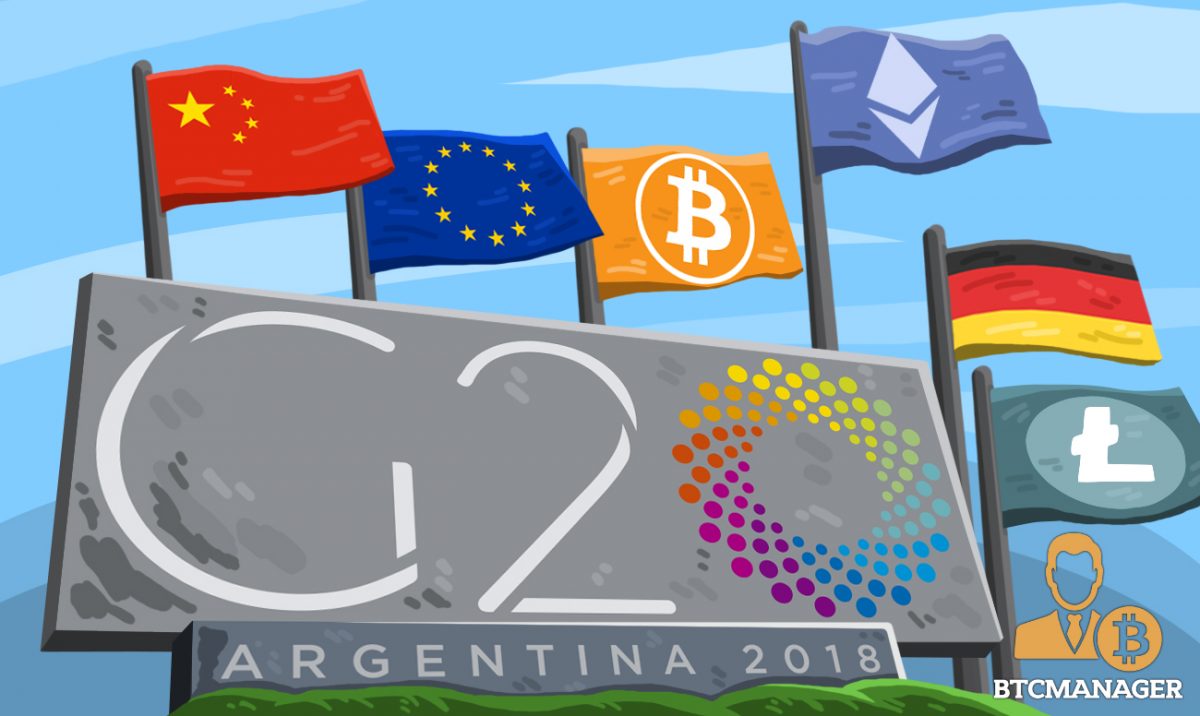Good News for Cryptocurrencies Ahead of G20 Summit

Finance ministers and central bankers from around the world will discuss new regulations for cryptocurrencies at this week’s G20 summit in Buenos Aires.
Amid global concerns that cryptocurrencies may be used for criminal purposes and money laundering, the G20 summit has highlighted for a discussion to be held on these viewpoints. These could include regulatory measures such as the UK Financial Conduct Authority’s (FCA) decision last week to issue a license to US crypto exchange Coinbase. Coinbase’s e-money license from the FCA was an endorsement that its business meets specific anti-money laundering and processing standards.
The policymakers are most likely to focus their discussions on consumer protection issues and anti-money laundering measures, which are currently absent from this market. This sentiment was echoed by Thomas Hulme, a law firm solicitor in London:
“In the last month, there have been several examples of government and regulatory actions towards cryptocurrencies. This shows acknowledgment that cryptocurrencies and blockchain have a potential to be used in a positive and productive way but also that the illegal activity within cryptocurrencies needs to be addressed,” Official Letter acknowledges cryptocurrencies as “Not a threat”.
Global Leaders to Discuss Merits of Cryptocurrencies
On the 18th of March, Financial Stability board member Mark Carney published a letter which stated that the organization does not see the tech of blockchain as a threat. The letter also stated how FSB’s initial assessment concluded that cryptocurrencies do not pose an inherent risk to the global financial markets. The potential lack of threat of cryptocurrencies can be attributed to the small size of cryptocurrencies to the vast global market.
Carney wrote: “Even at their recent peak, their (cryptocurrencies) combined global market value was less than 1% of global GDP,” he continued. “In comparison, just prior to the global financial crisis (in 2008), the notional value of credit default swaps was 100 percent of global GDP.
Cryptocurrencies are not direct substitutes for money, and their small size does not affect the real economy and other financial transactions. Hence, they have limited linkages to the rest of the financial markets.
Carney had previously commented on the limited impact that cryptocurrencies pose on the worldwide market. However, this letter offers a window into where the discussions around this area may head to at the G20 meeting this week. According to reports, official meetings on Monday and Tuesday shall involve the “important” agenda of Cryptocurrencies. The officials hope to reach a “common response” with regards to the topic.
Carney’s letter also acknowledged the world’s major economies, U.S, Japan, France, among others, who have voiced concerns and responses towards cryptocurrency speculation and blockchain technology. Japanese officials had recently expressed an interest in joining forces with other countries for anti-money laundering measures involving cryptocurrencies.
Amidst the world leaders voicing opinions and debating the aspects of cryptocurrency. We at BTCManager believe that regulation is inevitable, and cryptocurrency is here to stay. The only way this industry would grow is with unified global governance support, even if it goes against the completed decentralized ideology of cryptocurrency in the first place.












